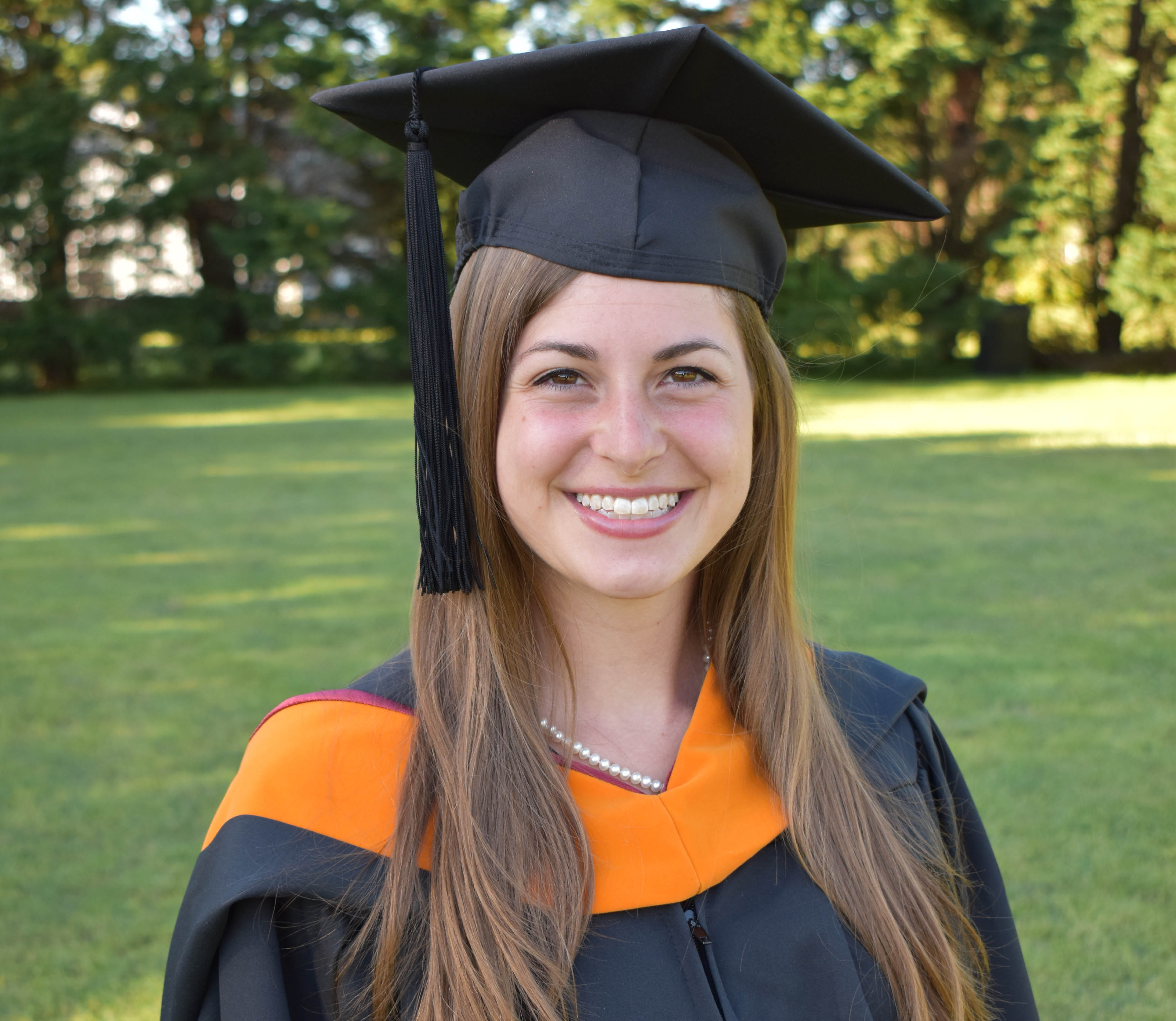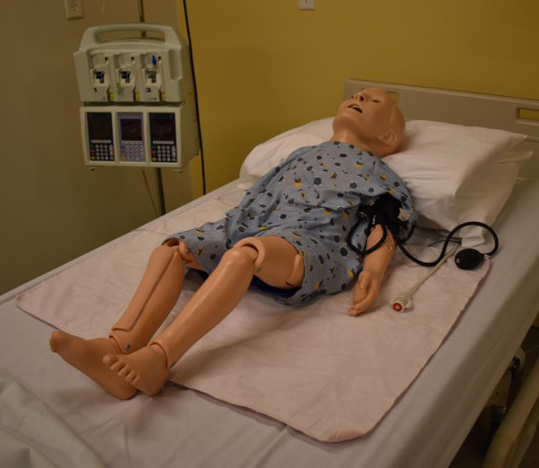SU Graduate Student Develops Online Pediatric Seizure Simulation for Nursing Students
 SALISBURY, MD---Most final projects mean an end to a course and the conclusion of a semester. At 黑料网, however, one graduate student’s final project could have a lasting impact on nursing students for years to come.
SALISBURY, MD---Most final projects mean an end to a course and the conclusion of a semester. At 黑料网, however, one graduate student’s final project could have a lasting impact on nursing students for years to come.
Brooke Hallett of Hurlock, MD, developed a pediatric seizure simulation for SU’s Richard A. Henson Medical Simulation Center as part of her graduate nursing internship.
“Under the course guidelines, I was required to synthesize what I had learned throughout the entire graduate nursing program in order to enhance my skills as an advanced practice nurse,” said Hallett. “Although the center had a manikin with these capabilities, there were no scenarios for students to perform and practice their seizure management skills, and I saw this as a perfect opportunity.”
Many nursing students lack occasions to witness or manage children with seizure disorders during their undergraduate education, and the ability to create materials and a simulation not only fulfilled Hallett’s course requirement, but could provide many uses for the center.
“Hopefully, SU will be able to use this again for future make-up clinicals, or incorporate it into their routine clinical rotation or into continuing education classes for established nurses,” said Hallett. “By providing a standardized seizure simulation, students will be able to use the knowledge and skills they have learned as they become future nurses or establish best practices for seasoned nurses.”
The simulation design is versatile and can be completed at the center as part of regular instruction or as a make-up clinical for students with a corresponding written assignment. In light of the recent transition to online courses to help slow the spread of COVID-19, Hallett also adapted the materials for a long-term, online case study.
“Brooke had an unexpected opportunity to extend her master’s project by using her simulation with junior nursing students studying at a distance during the COVID-19 pandemic,” said Dr. Lisa Seldomridge, professor of nursing and director of the Henson Medical Simulation Center. “Thanks to Brooke’s creativity, students were able to watch a video of her simulation and answer thought-provoking questions to build their clinical judgment skills.”
 The simulation includes everything students and faculty will need to complete and teach the exercise: a template that explains manikin settings and how the scenario unfolds, guideline sheets with corresponding prep materials from written course resources, a hand-off sheet with a primary profile of the simulation patient, a pre-briefing sheet, patient electronic medical records and de-briefing scripts.
The simulation includes everything students and faculty will need to complete and teach the exercise: a template that explains manikin settings and how the scenario unfolds, guideline sheets with corresponding prep materials from written course resources, a hand-off sheet with a primary profile of the simulation patient, a pre-briefing sheet, patient electronic medical records and de-briefing scripts.
“I’ve worked in pediatrics for five years, and it has always been my passion,” said Hallett. “It is imperative that nurses are properly trained and prepared for seizure situations that may occur in practice, and providing learners with the appropriate knowledge base has the potential to prevent negative attitudes about pediatric seizures.”
Hallett earned her B.S. in nursing from SU in 2015 and works full-time at Nanticoke Memorial Hospital in Seaford, DE. Her faculty mentor at SU is Dr. William Campbell. She plans to return to SU in the fall to teach pediatric nursing as clinical adjunct.
For more information call 410-543-6030 or visit the SU website.
